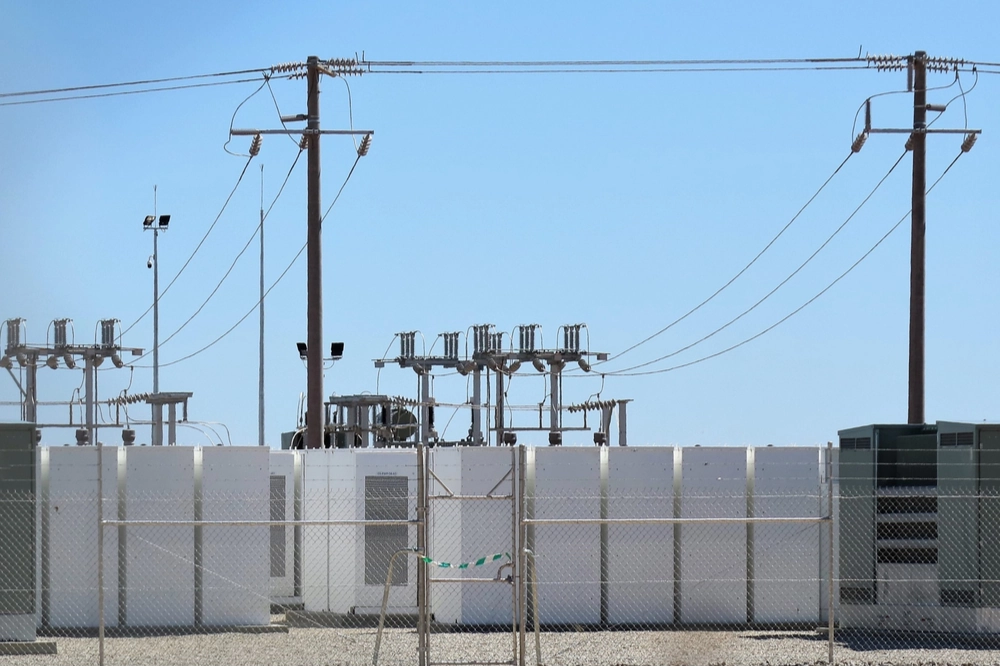
Partner
Head of Energy & Infrastructure | Projects, Infrastructure & Construction | Real Estate
This website will offer limited functionality in this browser. We only support the recent versions of major browsers like Chrome, Firefox, Safari, and Edge.

In the wake of TATA Group, Nissan and AEXC investing billions of pounds into EV manufacturing, and the number of companies looking to enter the battery space or increase their 'slice of the pie' increasing on a daily basis, the UK government has doubled down on its commitments to the battery industry with a new 'Design, Build, Sustain' policy framework published on Sunday 26 November 2023.
The framework centres around three pillars: design of innovative batteries, supporting the development of new BESS systems and a strong supply chain, and creating sustained investment in the battery sector.
Innovation is at the heart of the UK’s rapidly evolving battery ecosystem, and the crucial driver of cost and performance requirements for widespread adoption.
The government has announced a £2bn investment into research and development between 2025-2030, alongside cash injections into the UK Battery Industrialisation Centre (£38m) and the Advanced Minerals Battery Industrialisation Centre (£12m), two battery scale-up facilities.
The government continues to work towards a framework which offers sufficient cross-market support to the battery sector. Earlier this year the UK Infrastructure Bank backed established projects with a £24m equity investment into Cornish Lithium, and a £60m loan to support Pacific Green develop one of the country’s largest standalone storage parks.
Start-ups will welcome the government’s commitment to fund a Net Zero Blended Finance Project, which will explore the use of blended finance approaches across portfolios which include both early stage and established businesses (albeit the exact details of the initiative remain to be published).
In recognition of the challenges that battery storage developers face when submitting a planning application, the government has committed to providing better funding to local planning authorities to upskill practitioners (through the Planning Skills Delivery Fund) and a further commitment of £5m for incentivising Local Development Orders (which confer permitted development rights on targeted sites in a manner that typically fast-tracks planning approval) in England.
Safety remains at the heart of battery storage developments. Guidance has been published by National Fire Chiefs Council that local planning authorities need to refer to when deciding planning application for grid scale battery storage projects. The government has also committed to consulting on the inclusion of BESS in the environmental planning regulations at the earliest opportunity.
Having the right skillset is key in the battery space. The government has committed to delivering an apprenticeship scheme focused on training in growth sectors (including the battery sector). There is also a clear recognition in establishing a sustainable supply chain. In our dealings with renewable energy (including battery storage developers) the lack of a robust supply chain has been repeatedly highlighted. The government is looking both inwards (through investment in circular economy) and outwards (through international trade) in order to establish said chain.
More broadly the government’s commitment to maintaining the UK Battery Taskforce and working with network companies to condense connection timescales is very welcome.
At the latest Solar & Storage Live Conference 2023, the growth potential for the battery storage sector was highlighted. Whilst battery storage developers have seen a drop in anticipated revenues in 2023, compared to the preceding two years, the rate of growth does not seem to be slowing down and according to the government’s policy document, demand for stationary storage is due to rise to 20GWh by 2035.
Innovation is at the heart of the UK’s rapidly evolving battery ecosystem, and the crucial driver of cost and performance requirements for widespread adoption.
The government has announced a £2bn investment into research and development between 2025-2030, alongside cash injections into the UK Battery Industrialisation Centre (£38m) and the Advanced Minerals Battery Industrialisation Centre (£12m), two battery scale-up facilities.
The government continues to work towards a framework which offers sufficient cross-market support to the battery sector. Earlier this year the UK Infrastructure Bank backed established projects with a £24m equity investment into Cornish Lithium, and a £60m loan to support Pacific Green develop one of the country’s largest standalone storage parks.
Start-ups will welcome the government’s commitment to fund a Net Zero Blended Finance Project, which will explore the use of blended finance approaches across portfolios which include both early stage and established businesses (albeit the exact details of the initiative remain to be published).
In recognition of the challenges that battery storage developers face when submitting a planning application, the government has committed to providing better funding to local planning authorities to upskill practitioners (through the Planning Skills Delivery Fund) and a further commitment of £5m for incentivising Local Development Orders (which confer permitted development rights on targeted sites in a manner that typically fast-tracks planning approval) in England.
Safety remains at the heart of battery storage developments. Guidance has been published by National Fire Chiefs Council that local planning authorities need to refer to when deciding planning application for grid scale battery storage projects. The government has also committed to consulting on the inclusion of BESS in the environmental planning regulations at the earliest opportunity.
Having the right skillset is key in the battery space. The government has committed to delivering an apprenticeship scheme focused on training in growth sectors (including the battery sector). There is also a clear recognition in establishing a sustainable supply chain. In our dealings with renewable energy (including battery storage developers) the lack of a robust supply chain has been repeatedly highlighted. The government is looking both inwards (through investment in circular economy) and outwards (through international trade) in order to establish said chain.
More broadly the government’s commitment to maintaining the UK Battery Taskforce and working with network companies to condense connection timescales is very welcome.
At the latest Solar & Storage Live Conference 2023, the growth potential for the battery storage sector was highlighted. Whilst battery storage developers have seen a drop in anticipated revenues in 2023, compared to the preceding two years, the rate of growth does not seem to be slowing down and according to the government’s policy document, demand for stationary storage is due to rise to 20GWh by 2035.
In this exciting and fast changing market, we are very well positioned to advise on the evolving policy, commercial and legal issues impacting battery initiatives across the UK supply chain. Please get in touch if you would like to speak with one of our expert lawyers.



